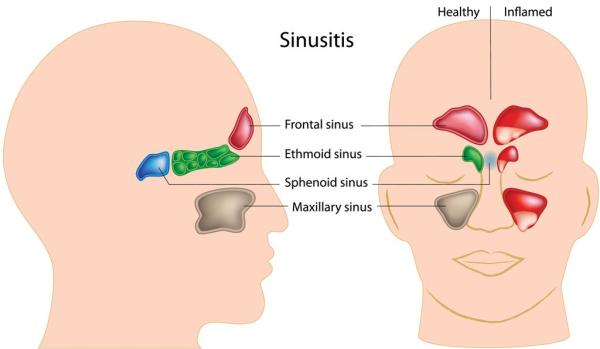| Sinusitis medications, while effective in treating infection and inflammation, can cause various side effects depending on the type of medication. Decongestants can lead to insomnia, nervousness, and increased blood pressure, while nasal sprays may cause rebound congestion if overused. Antibiotics, if prescribed, can disrupt gut flora, causing diarrhea or other digestive issues. Pain relievers like ibuprofen or acetaminophen can cause stomach upset or liver damage with overuse. It's crucial to follow prescribed dosages, inform your doctor about any pre-existing conditions or medications you're taking, and immediately report any concerning side effects to avoid complications. 
Sinusitis medications, while effective in treating sinus infections, can come with a range of side effects. Navigating these side effects requires understanding what to expect, knowing when to seek medical attention, and potentially adjusting your treatment plan.
Common Side Effects & Management: - Decongestants (oral or nasal sprays): These can cause nervousness, insomnia, increased blood pressure, and rebound congestion (worsening congestion if used for too long). Management: Use as directed, avoid long-term use (more than 3-7 days for nasal sprays), and consider alternatives if side effects are bothersome. Inform your doctor if you have high blood pressure or heart conditions.
- Antihistamines: These can cause drowsiness, dry mouth, constipation, and blurred vision. Management: Take at bedtime if drowsiness is a problem. Drink plenty of fluids to combat dry mouth and constipation. Avoid driving or operating machinery if vision is affected.
- Pain relievers (acetaminophen, ibuprofen): While generally safe, overuse can lead to liver or kidney damage. Management: Follow dosage instructions carefully. Avoid combining with alcohol or other medications without consulting your doctor.
- Antibiotics: These can cause diarrhea, nausea, vomiting, stomach upset, yeast infections, and allergic reactions. Management: Take with food to minimize gastrointestinal upset. Report any severe diarrhea or allergic reactions (rash, swelling, difficulty breathing) to your doctor immediately. Antibiotics should only be used when necessary, as overuse contributes to antibiotic resistance.
- Corticosteroids (nasal sprays): These can cause nosebleeds, irritation, and dryness in the nose. Rarely, they may cause more systemic side effects if used excessively or inappropriately. Management: Use as directed. If nosebleeds are frequent, contact your doctor.
When to Seek Medical Attention: - Severe allergic reactions: Difficulty breathing, swelling of the face or throat, hives.
- Severe or persistent side effects: Intense nausea, vomiting, diarrhea, or unusual bleeding.
- No improvement in symptoms after a week of treatment: This suggests the medication may not be effective, or a different diagnosis may be needed.
- Worsening symptoms: Increased pain, fever, or nasal discharge.
Important Considerations: - Always follow your doctor's instructions: Don't adjust dosages or stop taking medication without consulting your doctor.
- Be honest about your medical history: Inform your doctor about any pre-existing conditions or medications you are currently taking.
- Consider alternative treatments: If side effects are unbearable, talk to your doctor about other treatment options, such as saline nasal rinses, humidifiers, or natural remedies.
This information is for general knowledge and does not constitute medical advice. Always consult with a healthcare professional for diagnosis and treatment of sinusitis and any related side effects.
Tags: Healthcare Medical Treatment Patient Communication Physician Guidance Side Effects Sinusitis Medications Symptom Management  
|
 1,437
1,437  0
0  0
0  3350
3350 